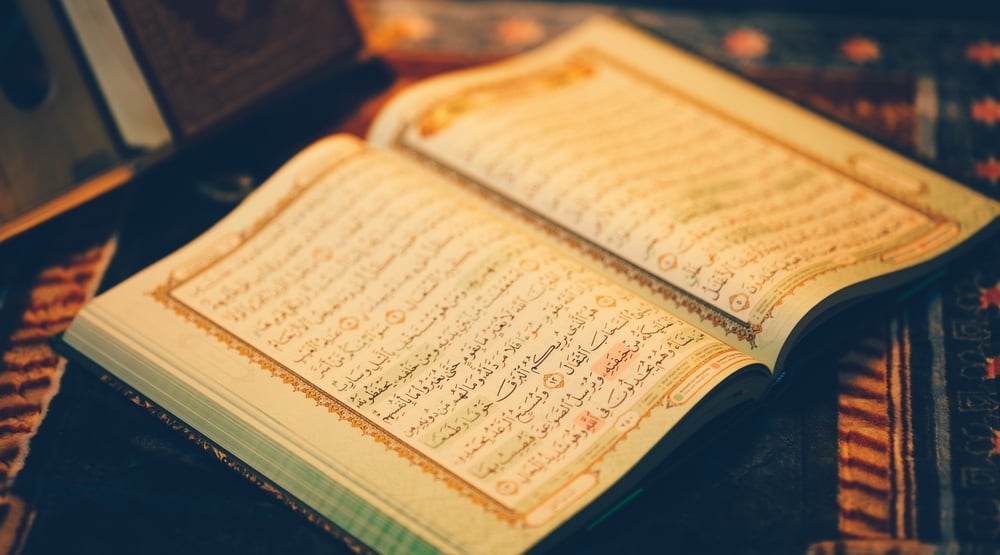Can We Identify the Meccan Verses Based on the Subject Matter?
Answered by Shaykh Anas al-Musa
Question
Can we identify the Meccan verses based on the subject matter of these verses?
Answer
In the name of Allah, the Most Gracious, the Most Merciful.
All praise is due to Allah, Lord of all worlds. Peace and blessings be upon the Messenger sent as a mercy to the worlds, our Master and Prophet, Muhammad, and his Family and Companions.
Yes, it is possible to identify the Meccan verses based on the subject matter of a verse or a chapter. This is because the Meccan verses focus on several key themes, including:
Establishing the Fundamentals of Faith
It calls people to the oneness of Allah (Most High) and to worship Him alone, along with belief in the Hereafter and all that it entails, such as reward, Paradise, and Hell.
An example is found in the Meccan chapter, Surat al-Qasas, where Allah (Most High) says:
“And your Lord knows what their hearts conceal and what they reveal. He is Allah. There is no god (worthy of worship) except Him. All praise belongs to Him in this life and the next. All authority is His. And to Him you will (all) be returned. Ask (them, O Prophet),
‘Imagine if Allah were to make the night perpetual for you until the Day of Judgment, which god other than Allah could bring you sunlight? Will you not then listen?’
Ask (them also),
‘Imagine if Allah were to make the day perpetual for you until the Day of Judgment, which god other than Allah could bring you night to rest in? Will you not then see?’
It is out of His mercy that He has made for you the day and night so that you may rest (in the latter) and seek His bounty (in the former), and perhaps you will be grateful.” [Quran, 28:69-73]
Condemnation of Idolatry and Polytheism
The Meccan verses strongly criticize these practices, providing irrefutable evidence of their falsehood, using examples such as the fly or the spider. For instance, in Surat al-Hajj, Allah (Most High) says:
“O humanity! A lesson is set forth, so listen to it (carefully): those (idols) you invoke besides Allah can never create (so much as) a fly, even if they (all) were to come together for that. And if a fly were to snatch anything away from them, they cannot (even) retrieve it from the fly. How powerless are those who invoke and those invoked! They have not shown Allah the reverence He deserves. Surely Allah is All-Powerful, Almighty.” [Quran, 22:73-74]
Likewise, in Surat al-Ankabut:
“The example of those who take allies other than Allah is like that of the spider who takes (i.e., constructs) a home. And indeed, the weakest of homes is the home of the spider, if they only knew.” [Quran, 29:41]
Narratives of the Prophets
The Meccan verses frequently recount the stories of prophets and their people, which is rarely mentioned in the Madinan chapters. This has become a distinguishing feature of the Meccan Quran, as seen in Surat al-A‘raf, Hud, al-Qasas, and others.
Emphasis on Moral Principles
The Meccan Quran lays out fundamental moral values such as truthfulness, righteousness, maintaining ties of kinship, honoring parents, respecting neighbors, and purity of heart and speech. For example, in the Meccan chapter, Surat al-Isra’, the ten moral commandments are outlined:
“For your Lord has decreed that you worship none but Him. And honor your parents. If one or both of them reach old age in your care, never say to them (even) ‘ugh,’ nor yell at them. Rather, address them respectfully. And be humble with them out of mercy, and pray, ‘My Lord! Be merciful to them as they raised me when I was young.’” [Quran, 17:23-24]. [See: Zarkashi, al-Burhan, Suyuti, al-Itqan; Zurqani, Manahil al-‘Irfan; Tayyar, al-Muharrar fi ‘Ulum al-Quran; ‘Itr, ‘Ulum al-Quran]
Summary
Thus, if we find one of these themes in a verse or chapter, it is likely to be Meccan, except for a few exceptions. For example, Surat al-Baqarah is Madinan, even though it includes stories of the prophets, so one should be aware of such nuances.
Finally, knowing whether a chapter is Meccan or Madinan provides insight into the circumstances surrounding the revelation of the Quran. This knowledge greatly influences the understanding and interpretation of the Quran, to the point that scholars have stated that it is not permissible for someone who lacks this knowledge to interpret the Quran.
May Allah bless the Prophet Muhammad and give him peace, and his Family and Companions.
And Allah knows best.
[Shaykh] Anas al-Musa
Shaykh Anas al-Musa, born in Hama, Syria, in 1974, is an erudite scholar of notable repute. He graduated from the Engineering Institute in Damascus, where he specialized in General Construction, and Al-Azhar University, Faculty of Usul al-Din, where he specialized in Hadith.
He studied under prominent scholars in Damascus, including Shaykh Abdul Rahman al-Shaghouri and Shaykh Adib al-Kallas, among others. Shaykh Anas has memorized the Quran and is proficient in the ten Mutawatir recitations, having studied under Shaykh Bakri al-Tarabishi and Shaykh Mowfaq ‘Ayun. He also graduated from the Iraqi Hadith School.
He has taught numerous Islamic subjects at Shari‘a institutes in Syria and Turkey. Shaykh Anas has served as an Imam and preacher for over 15 years and is a teacher of the Quran in its various readings and narrations.
Currently, he works as a teacher at SeekersGuidance and is responsible for academic guidance there. He has completed his Master’s degree in Hadith and is now pursuing his Ph.D. in the same field. Shaykh Anas al-Musa is married and resides in Istanbul.
